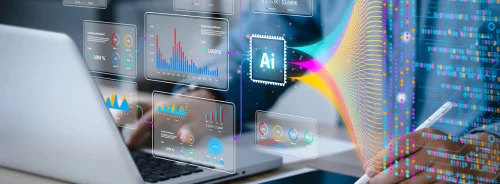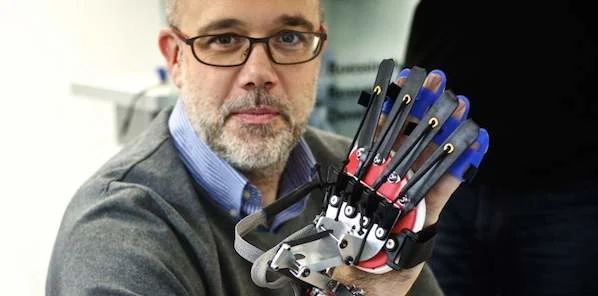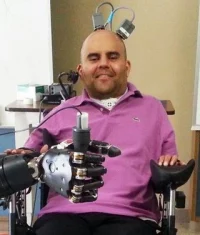A team of European partners, led by researchers at the University of Hertfordshire in the UK, has passed the proof-of-concept stage for a robotic glove that can assist stroke patients in their home-based recovery. The glove facilitates repetitive movements of the hand and wrist, which can improve motor and functional outcomes, providing greater independence to patients in the chronic stages of stroke during which treatment is not regular.
The €4,643,983 project is called SCRIPT, an acronym for Supervised Care and Rehabilitation Involving Personal Tele-robotics. It was coordinated by Dr. Farshid Amirabdollahian, a rehabilitation robotics and assistive technologies expert at the University of Hertfordshire's School of Computer Science, where he is also a senior lecturer in adaptive systems.
Healing at Home
"This project focused on therapies for stroke patients at home. Our goal was to make motivating therapies available to people to practise at home using this system, hoping that they have a vested interest to practise and will do so,” said Dr. Farshid Amirabdollahian.
”We tried this system with 30 patients and found that patients indeed practised at home, on average around 100 minutes each week, and some showed clinical improvements in their hand and arm function,” Dr. Amirabdollahian said. In consideration of these results, the team is searching for sources of funding to make the prototype an available home rehabilitation product.
Tele-Robotics Increase Independence
In addition to providing a motivational tool for stroke therapy, the device is able to record a patient’s performance as they exercise their hands and wrists. This information can be sent to the therapist who is coordinating treatment, so that appropriate follow-up can be arranged. The remote monitoring improves the independence of patients who are recovering in their homes, since it reduces the frequency of hospital or home visits.
One of the goals of the SCRIPT project was to provide a more positive therapy session, so that people who are impaired by stroke will be encouraged to actively participate in their recovery after they leave the hospital or rehabilitation centre. The robotic glove, with its ability to generate feedback for the patient and therapist, offers an engaging device that the researchers hope will improve functionality and therefore outcomes.
The SCRIPT project was partially funded by the European Commission under the Seventh Framework Programme for Research and Technological Development.
Source: University of Hertfordshire
Image Credit: University of Hertfordshire










